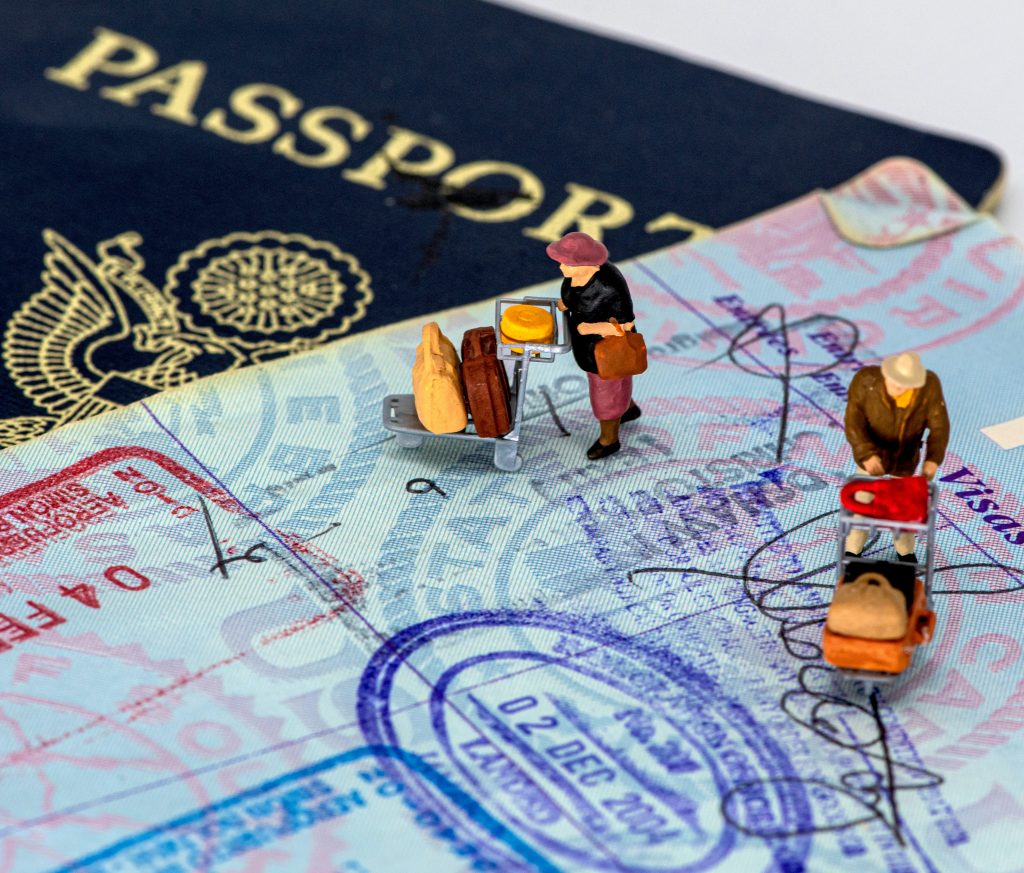In mid November 2025 the Immigration Bureau circulated an internal memo to officers around the country. The instruction is clear: raise the level of screening on foreigners who repeatedly enter and leave Thailand and stop people from using short stay visas and visa exemptions as a way to live in the country long term. If you have been relying on back to back visa exemptions, tourist visas and quick hops to neighboring countries, this directly affects you. What did Immigration actually say? The memo orders officers to: So what has really changed? Some of this has always been in the law, but in practice enforcement depended a lot on the individual officer and location. Many people could chain visa exemptions or tourist visas for years with only occasional questions. What changed now is: In short: the door has not been slammed shut, but it is no longer “business as usual”…
Posts published in “Visa”
Agents Co., Ltd., a leading technology and service provider for expat services, has launched a new 90-Day Reporting Service that completely transforms how foreigners in Thailand manage their mandatory immigration reports. Making Immigration Reporting Simple and Reliable Under Thai immigration law, every foreign resident who stays in the country longer than 90 consecutive days must report their current address to the Immigration Bureau. This must be done every 90 days throughout their stay. Missing the report or submitting incorrect details can lead to fines, delays, or rejected applications. Many expats are familiar with the dreaded message: “Your application for STAYING LONGER THAN 90 DAYS has been rejected. Please contact the nearest Immigration Office in person immediately.” This is often caused by small errors, outdated documents, or incomplete submissions. Agents’ new platform at 90day.in.th was built to solve exactly these problems, offering a modern, automated solution that handles everything from submission…
Travelers heading to Thailand are now required to submit a Thailand Digital Arrival Card (TDAC) before entry. This digital form has replaced the old TM6 paper card and is mandatory for nearly all non-Thai citizens. While the government portal only allows submissions within 72 hours of arrival, the official TDAC AGENTS portal has launched a major update that makes the process significantly more flexible and convenient. Originally built for tour groups, the updated portal now supports early TDAC submissions, letting travelers complete their forms up to one year in advance. But this update goes much further than that. It now lets you handle nearly every part of your arrival process in a single submission — from immigration paperwork to essential travel services. With just one form, you can now: The portal is also accessible in 77 languages, making it easier for international travelers to understand and complete their TDAC without…
Bangkok, Thailand – AGENTS CO., LTD. has launched a new redundancy platform for Thailand Digital Arrival Card (TDAC) submissions, delivering a fast, flexible, and reliable solution for travelers, tour operators, and agents. The system was developed to reduce stress, streamline the submission process, and provide uninterrupted access even when the official site experiences technical issues. Key features include: Official TDAC form by AGENTS ( https://agents.co.th )Official TDAC information page by AGENTS ( https://tdac.agents.co.th ) The service is entirely free for submissions made within the 72-hour window before arrival. For those looking to prepare early, an optional $8 convenience fee ensures their TDAC will be automatically submitted at the first eligible moment by the AGENTS CO., LTD. team. Travelers can also purchase eSIM cards for each traveler in one click at the best available rate, ensuring they not only have their TDAC secured, but also internet access as soon as they…
Great news for digital nomads! Thailand has introduced the new Destination Thailand Visa (DTV), designed for remote workers and digital nomads. This visa is part of Thailand’s efforts to boost tourism and attract more visitors. Key Points about the DTV Visa: More details and updates can be found on this Destination Thailand Visa website, which is actively monitoring the situation. Disclaimer: This information is based on current published details and may change. Check the website for the latest updates. It is important to note that the DTV visa does NOT allow “any” digital nomad to stay in Thailand for five years. It can be used within a five-year period for 180 days, and extended once for another 180 days, with a 10,000 baht filing fee each time. After being used twice, the DTV visa would expire.
Thailand, the land of endless beauty and cultural richness, also comes with its own set of bureaucratic intricacies—especially when it comes to visas. Whether you’re a globetrotter, an expat, or a long-term resident, navigating through the visa maze is a challenge. That’s where Thai Visa Centre comes into play, offering more than just visa services; they offer peace of mind. Your Trusty Guide in a Virtual Sea of Reviews and Experience In the digital universe where reviews serve as lighthouses, guiding us through the sea of choices, Thai Visa Centre shines like a supernova. Imagine having a score of over 4.9 in more than 1,200+ Google reviews, and over 1,500+ Facebook reviews. These aren’t mere numbers; they’re a loud vote of confidence from a legion of satisfied clients. What gives Thai Visa Centre its standout status in the complex world of visas? It’s the blend of expertise and foresight they…
Recently, there has been a general trend toward simplifying the travel process in Thailand. The Royal Thai Embassy as well as its Consulates-General in 23 other countries have started providing electronic visa services to the local communities in those nations. The Thai government has made it possible to obtain an electronic visa and process it at around 38 different places throughout the world in order to make traveling to Thailand easier. E-visas are able to be utilized in the application process for a wide variety of visa classifications. The great majority of visas are granted to tourists, business travelers, and investors. These categories account for the vast majority of visas granted. Applicants seeking non-immigrant visas have a few more alternatives available to them. They may submit an application for an ED visa to study in the country, an O visa to go to the country to see family and friends,…
When former member of parliament Chuwit Kamolvisit said that three former immigration police officers helped Chinese triad members set up foundations in Thailand, the Immigration Bureau did something about it. The commissioner said that Chinese criminal cases were handled by Pol Gen Surachate Hakparn, who was the deputy national police commander. The Immigration Bureau and 26 branches of the Immigration Police looked into how Chinese citizens got visas. Yesterday, Koh Samui Immigration Police arrested a Polish man Interpol was looking for because he was violent and had guns he wasn’t supposed to have. The Immigration and Customs Enforcement department will change its rules to make it harder for foreign criminals to get their visas extended through “studies or foundations.” The head of the Immigration Bureau said that a working group would change the rules about visa extensions for foreigners who work for charities, go to school, or get medical care.…
Immigration authorities all around the country have been stepping up their enforcement efforts against foreign nationals who overstay the validity of their stamps or visas. A program that runs for ten days beginning on December 1 and ending on December 10 is conducting an aggressive search for visitors who have overstayed the date indicated on their passports and are still present in the country. And some of the provinces are employing some quite unsettling Big Brother-style surveillance equipment to accomplish this. The immigration office in the province of Surat Thani, which is home to the popular tourist destinations of Koh Samui, Koh Phangan, and Koh Tao, has implemented some cutting-edge technological solutions. Officers now use smart patrol cars that are equipped with advanced facial recognition technology to expeditiously verify visitors from other countries. In order to crack down on international visitors who have overstayed their visas, immigration authorities are now…
Visa exemption upon arrival is offered to nationals of 64 countries with which Thailand has bilateral agreements. These citizens do not need to submit a visa application in advance since they are exempt upon arrival. Beginning on October 1, 2022, and ending on March 31, 2023, visitors who meet the requirements for Visa Exemption on Arrival will be permitted to extend their stay in Thailand for up to 45 days. These passengers do not need to apply in advance if they hold a valid passport from one of 19 other countries; visas can be issued upon arrival. Beginning on October 1, 2022, and concluding on March 31, 2023, visitors to Thailand who are eligible for a Visa on Arrival will be able to extend their stay for up to 30 days. If you reside outside of Thailand, you can apply for a tourist visa for stays of up to 60…








